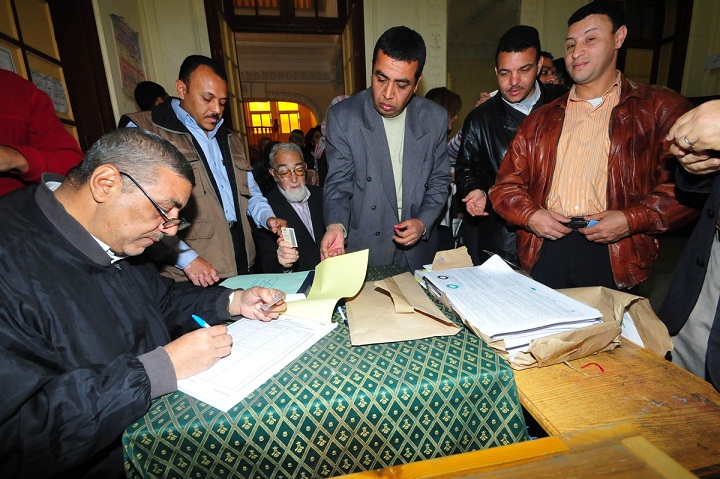As Pakistanis celebrate sixty years of independence, the country finds itself embroiled in yet another seemingly intractable political crisis. The state, founded by one of the Indian subcontinent s most brilliant lawyers, Muhammad Ali Jinnah, has spent more than half of its life under military rule. Jinnah envisioned Pakistan as a secular and democratic state. Today Pakistan is ruled by the military, and President Pervez Musharraf seems determined to stay in power despite his inability to prevent the growing militancy and political unrest brewing in the country.
Musharraf has travelled down a well-trodden path. Starting with the first military coup in 1958, the country has experienced a continuous power struggle between elected and military rulers. The plot is quite predictable by now. A general overthrows a civilian government in a military coup, making lofty but inevitably elusive promises to hold elections and return the country to democratic rule.
Democracy may not be the panacea for all Pakistan s problems but it is a discourse deeply rooted in the Pakistani polity since the country s inception. Unlike many other Muslim countries, Pakistan has enjoyed brief periods of democratic rule. But elections are just one component of democracy and must be supported by strong institutions such as an independent judiciary, a free press and a robust civil society, elements that have – until recently – been absent in Pakistan.
In March, Musharraf made the mistake of suspending the most senior judge of the Supreme Court of Pakistan, Ifitkhar Chaudhury. Few could have contemplated the overwhelming public support that followed. The demand for the restoration of the Chief Justice and the independence of the judiciary captured the imagination of the nation. In a historic verdict by the Supreme Court this month, the Chief Justice was reinstated.
This lawyers movement was a rare and unprecedented display of people s power in Pakistan. The protests were brought to the homes of millions of people by Pakistan s electronic media. Musharraf s seven-year rule has seen the strengthening of Pakistani civil society and a free press; it is these two institutions that could play an important role in his downfall.
There is a well-known saying in Pakistan that there are three A s that keep the country intact: Allah, the Army and America. This saying may be indicative of some deeper truths about the powers that shape Pakistani political life. Pakistan was a crucial American ally in the final days of the Cold War, which saw the Soviet defeat in Afghanistan. Today Pakistan once again finds itself as an indispensable ally in the Bush administration s so-called War on Terror . But the two countries have always had a difficult relationship with mutual suspicion entrenched on both sides. A stable and friendly Pakistani government is essential for American efforts to maintain the fledgling peace in Afghanistan and curb the militancy along the Pak-Afghan border.
The fear that Pakistan, a state armed with nuclear weapons, could be taken over by hostile religious extremists has been a source of concern for American policy makers. The recent standoff between the government and fundamentalist students in the Red Mosque in the heart of the capital Islamabad ostensibly strengthens that perception. However, the Pakistani military establishment has a dubious and well-documented history of covertly supporting religious political parties and militant groups to marginalize mainstream political parties and further its foreign policy objectives. While religious parties may enjoy strong social support in Pakistan, they have had limited electoral success, as has been proven time and again at the ballot box.
Today Musharraf finds himself at an important crossroads. His political opponents argue that it is unconstitutional for him to simultaneously remain President and Chief of Army. With parliamentary elections scheduled for October, the President is faced with a difficult dilemma: he can either attempt to stay in power in the hopes of continued support from his two principle allies – the Pakistan Army and America – or he can step down from his position as Chief of Army and allow a peaceful transition of power to a civilian government by holding transparent elections. Such a move could secure him a place in history and ensure that his considerable economic and social reforms in Pakistan are not overshadowed by a desperate attempt to stay in power at all costs.
There is evidence of recent clandestine talks of cooperation between Musharraf and Benazir Bhutto, the exiled leader of Pakistan s largest political party. If these talks bear fruit, there could be a return to civilian rule in the country. Unfortunately, this in itself will not guarantee a quick fix to Pakistan s myriad problems. The track records of the leaders of Pakistan s two major political parties, Benazir Bhutto and Nawaz Sharif, hardly inspire confidence in democratic leadership of the country.
In order for a democratic political culture to take root in Pakistan, civilian governments must be allowed to complete their tenures in office. The people, along with democratic institutions, such as an independent judiciary and free press, should hold political leadership accountable.
In the long-term, perhaps the Turkish political model of an institutionalized role for the military in politics may be the only solution to maintain a balance of power between Pakistan s powerful military establishment and popularly elected governments.
Rehan Rafay Jamilis a freelance journalist based in Pakistan. This article is distributed by the Common Ground News Service (CGNews) and can be accessed at www.commongroundnews.org.
